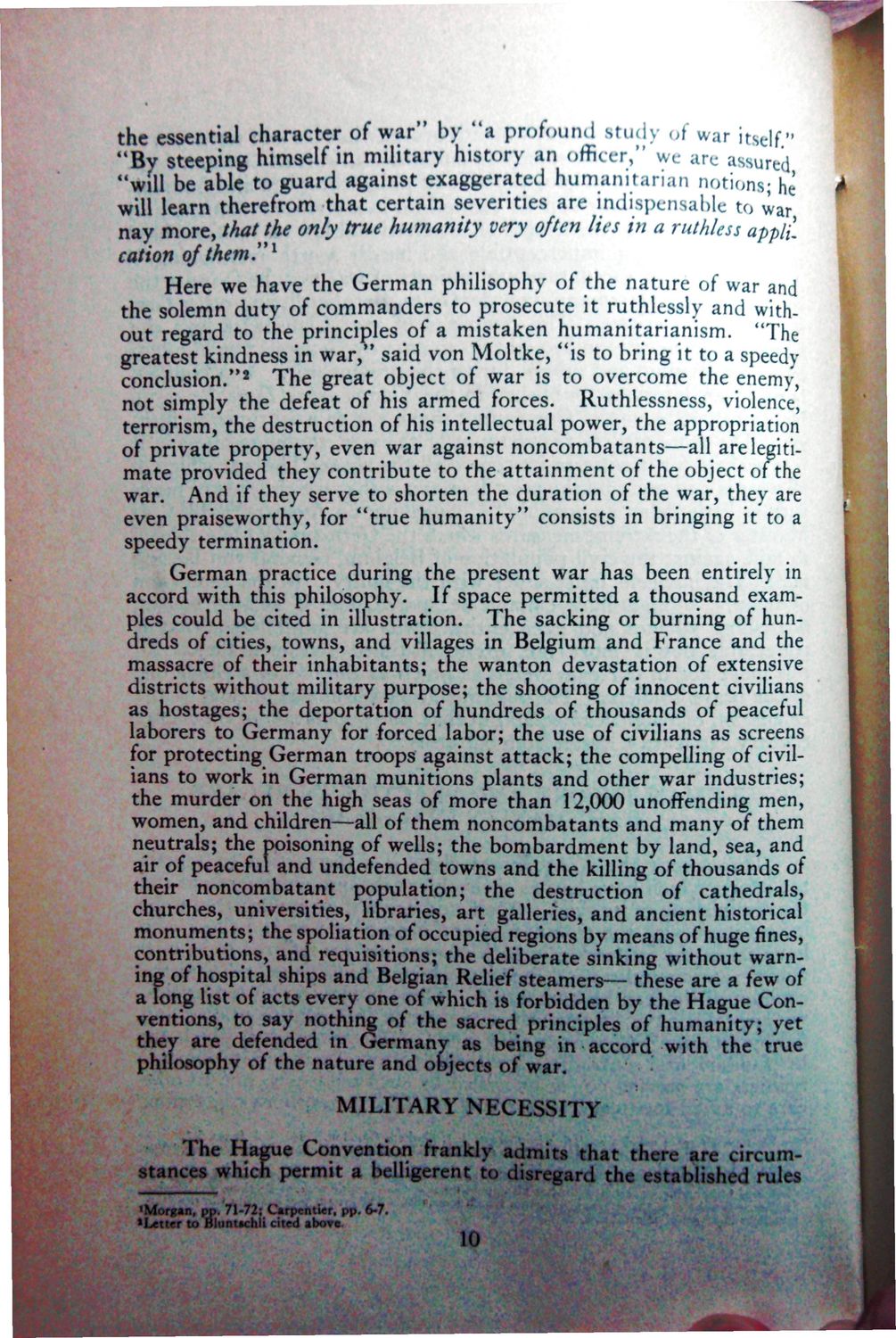| |
| |
Caption: War Publications - WWI Compilation 1923 - Article 14
This is a reduced-resolution page image for fast online browsing.

EXTRACTED TEXT FROM PAGE:
the essential character of war" by " • profound study of war itself" "By steeping himself in military history an officer/' we are assured "will be able to guard against exaggerated humanitarian notions; he will learn therefrom that certain severities are indispensable to war nay more, that the only true humanity very often lies in a ruthless appli 1 cation of them." Here we have the German philisophy of the nature of war and the solemn duty of commanders to prosecute it ruthlessly and without regard to the principles of a mistaken humanitarianism. "The greatest kindness in war," said von Moltke, "is to bring it to a speedy conclusion."* The great object of war is to overcome the enemy, not simply the defeat of his armed forces. Ruthlessness, violence, terrorism, the destruction of his intellectual power, the appropriation of private property, even war against noncombatants—all are legitimate provided they contribute to the attainment of the object of the war. And if they serve to shorten the duration of the war, they are even praiseworthy, for "true humanity" consists in bringing it to a speedy termination. German practice during the present war has been entirely in accord with this philosophy. If space permitted a thousand examples could be cited in illustration. The sacking or burning of hundreds of cities, towns, and villages in Belgium and France and the massacre of their inhabitants; the wanton devastation of extensive districts without military purpose; the shooting of innocent civilians as hostages; the deportation of hundreds of thousands of peaceful laborers to Germany for forced labor; the use of civilians as screens for protecting German troops against attack; the compelling of civilians to work in German munitions plants and other war industries; the murder on the high seas of more than 12,000 unoffending men, women, and children—all of them noncombatants and many of them neutrals; the poisoning of wells; the bombardment by land, sea, and air of peaceful and undefended towns and the killing of thousands of their noncombatant population; the destruction of cathedrals, churches, universities, libraries, art galleries, and ancient historical monuments; the spoliation of occupied regions by means of huge fines, contributions, and requisitions; the deliberate sinking without warning of hospital ships and Belgian Relief steamers— these are a few of a long list of acts every one of which is forbidden by the Hague Conventions, to say nothing of the sacred principles of humanity; yet they are defended in Germany as being in accord with the true philosophy of the nature and objects of war. MILITARY NECESSITY The Hague Convention frankly admits that there are circumstances which permit a belligerent to disregard the established rules 'Morgan, pp. 71-72; Carpentier, pp. 6-7. •Letter to Rhinttchli cited abate. IO
| |